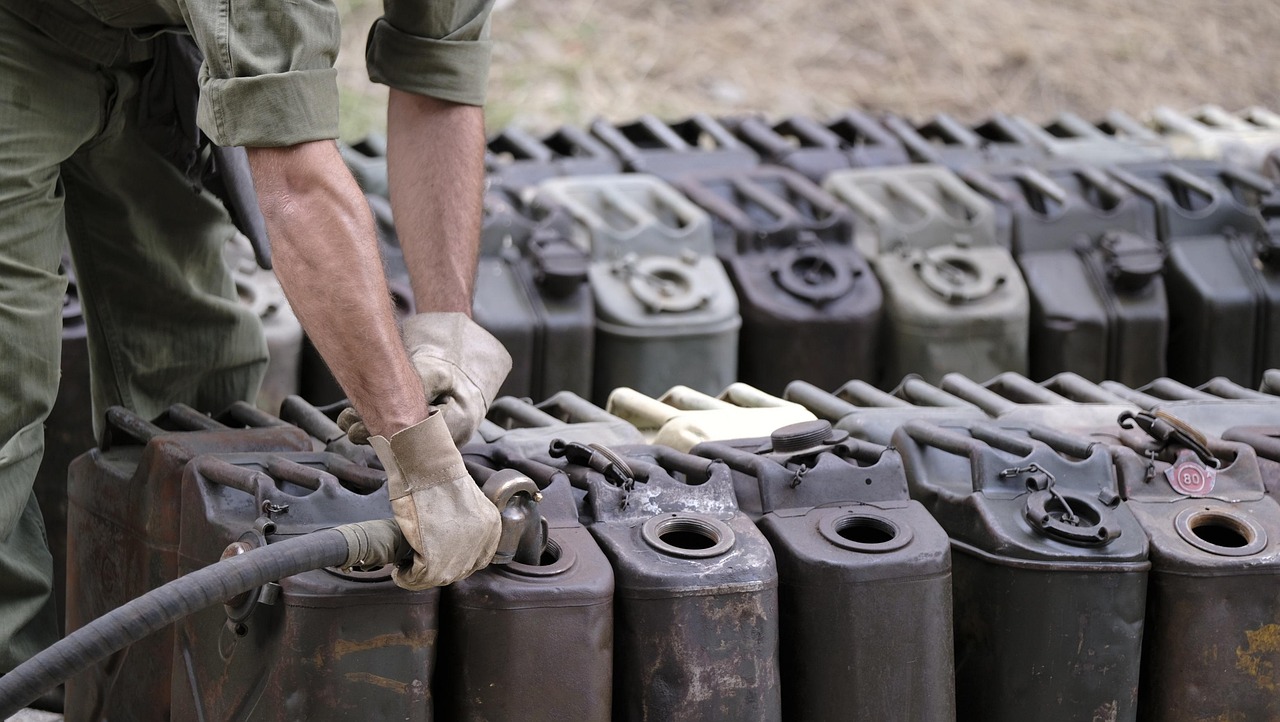The oil market is frozen in anticipation of the meeting between Trump and Putin
15 August 09:03
On Friday, oil prices are changing slightly and somewhat chaotically in anticipation of a meeting between US President Donald Trump and Russian President Vladimir Putin. This is reported by "Komersant Ukrainian" with reference to Reuters.
Thus, at night, Kyiv time, prices on Asian markets rose by 14-16 cents, and this was a weekly high. However, as of 9:00 a.m. Kyiv time, according to OilPrice.com, oil prices have already rolled back. Futures for Brent crude oil fell by 12 cents (0.18%) to $66.72 per barrel compared to the previous session. US WTI futures fell by 14 cents (0.22%) to $63.82.
Trump and Putin’s meeting
The world’s attention is focused on today’s meeting between Trump and Russian leader Putin in Alaska, where a ceasefire in the Russian-Ukrainian war is at the top of the agenda. The ongoing conflict between Russia and Ukraine is supporting oil markets by limiting Russian oil supplies.
At the same time, Trump said he believes in Russia’s readiness to end the war against Ukraine.
Читайте нас у Telegram: головні новини коротко
Data from Japan
Quotes were also supported by positive economic data from Japan, one of the world’s largest oil importers.
Fresh data from the Japanese government released on Friday showed that the country’s economy grew by 1.0% year-on-year in April-June, exceeding the median market forecast of 0.4%.
The growth in gross domestic product (GDP) represents a quarterly increase of 0.3%, compared to the median estimate of 0.1%. Strong economic activity usually stimulates oil consumption.
Data from the US
However, the prospect of prolonged high interest rates in the United States prevented oil prices from rising further.
Higher-than-expected inflation data and weak labor market indicators in the US have raised concerns that the Federal Reserve will maintain high interest rates, which usually restrains oil consumption.
Читайте нас у Telegram: головні новини коротко
How to hurt Russia over oil
It is well known that Russia is critically dependent on its energy exports. First and foremost, on oil exports. In 2024, the Russian federal budget revenues from oil sales amounted to 9.19 trillion rubles (approximately $89.4 billion). Total budget revenues for this period amounted to 36.71 trillion rubles. Thus, the share of oil revenues in the total structure of Russian budget revenues in 2024 was approximately 25%
This indicates that, despite international sanctions and attempts to diversify revenue sources, oil remains a key source of financing for the Russian budget.
Russian Urals oil is traditionally sold at a lower price than Brent and WTI, and it is also subject to additional factors that raw materials from other countries do not experience, namely Western sanctions. However, during all three years of the full-scale war with Ukraine, Russia has been successfully selling its oil – its main buyers today are China and India.
The federal budget of the Russian Federation for 2025 included an oil price of $70. However, according to the Ministry of Finance, on August 13, the price of Russian Urals was $61.62 per barrel. Against this backdrop, the Russian state budget deficit has already amounted to 4.88 trillion rubles, or 2.2% of GDP, and more than a trillion of this has been accumulated over the past month. This hole in the treasury is almost 4.5 times higher than in the same period in 2024, when the deficit was 1.1 trillion rubles, or 0.5% of GDP.
So far, market analysts’ forecasts do not promise Russia any serious problems related to the oil price, as it still has a very large backlash for sales. According to economic expert Oleg Pendzin, even a price of $50 per barrel is still acceptable for Russia.
“Currently, the direct cost of Russian oil production is about $37-38 per barrel. This is the direct cost. The critical figure for Russia is the sales price of $45,”
– explained the economist exclusively for .
Therefore, the most likely way to hurt Russia over oil is still to increase sanctions, including secondary sanctions against its buyers. The point of this step is to make it physically impossible for Russia to sell large volumes of oil and thus receive funds to continue its aggressive war of aggression.









